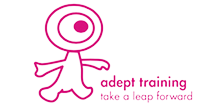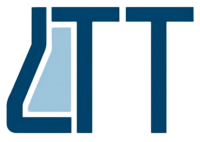
Popular courses in Sydney
Certificate III in Pathology Collection
- There are no mandated entry requirements.


Certificate III in Health Services Assistance
- There are no mandated entry requirements.


Certificate III in Health Administration
- There are no mandated entry requirements.


Certificate III in Allied Health Assistance
- There are no mandated entry requirements.
 Foundation Education
Foundation Education
Certificate IV in Allied Health Assistance
- There are no mandated entry requirements.
 Foundation Education
Foundation Education
Certificate IV in Medical Practice Assisting
- There are no mandated entry requirements.
 Adept Training
Adept Training
Certificate III in Pathology Assistance
- There are no mandated entry requirements.
 Adept Training
Adept Training
Certificate III in Laboratory Skills
- There are no mandated entry requirements.
 LTT
LTT
Diploma of Laboratory Technology
- There are no mandated entry requirements.
 ABC Training and Consulting
ABC Training and Consulting
Perform Venous Blood Collections
- There are no mandated entry requirements.
 Benchmarque Group
Benchmarque Group
Bachelor of Health Science
- There are no mandated entry requirements.


Bachelor of Nursing
- There are no mandated entry requirements.







Bachelor of Medical Science
- There are no mandated entry requirements.




Bachelor of Biomedical Science
- There are no mandated entry requirements.
 Australian Catholic University
Australian Catholic University
Bachelor of Science (Biochemistry and Molecular Biology)
- There are no mandated entry requirements.
 The University of Sydney
The University of Sydney
Bachelor of Science (Biology)
- There are no mandated entry requirements.





Bachelor of Science (Biotechnology)
- There are no mandated entry requirements.


Bachelor of Science (Genetics)
- There are no mandated entry requirements.
 University of New South Wales
University of New South Wales
Bachelor of Science (Genetics and Genomics)
- There are no mandated entry requirements.
 The University of Sydney
The University of Sydney
Bachelor of Science (Immunology)
- There are no mandated entry requirements.
 University of New South Wales
University of New South Wales
Frequently Asked Questions
Yes, there are course providers who offer 20 qualification(s) in Sydney. Find a course provider near you. Once you make an enquiry, a course advisor will get in touch to discuss your study options and course fees.
Written by Courses.com.au Team
There are several campuses within the Sydney area that provide pathology training. The closest campus is 1km away from the center of Sydney. You can also study a pathology course through online, traineeship learning. Find a course provider that best suits your needs.
Written by Courses.com.au Team
Potential job roles within pathology includes medical laboratory technician, pathology assistant or pathology collector (to name a few). Browse related occupations to find a career that suits your needs.
Written by Courses.com.au Team
Further reading


Certificate III in Pathology Collection: Everything You Need to Know
10th February 2025)
